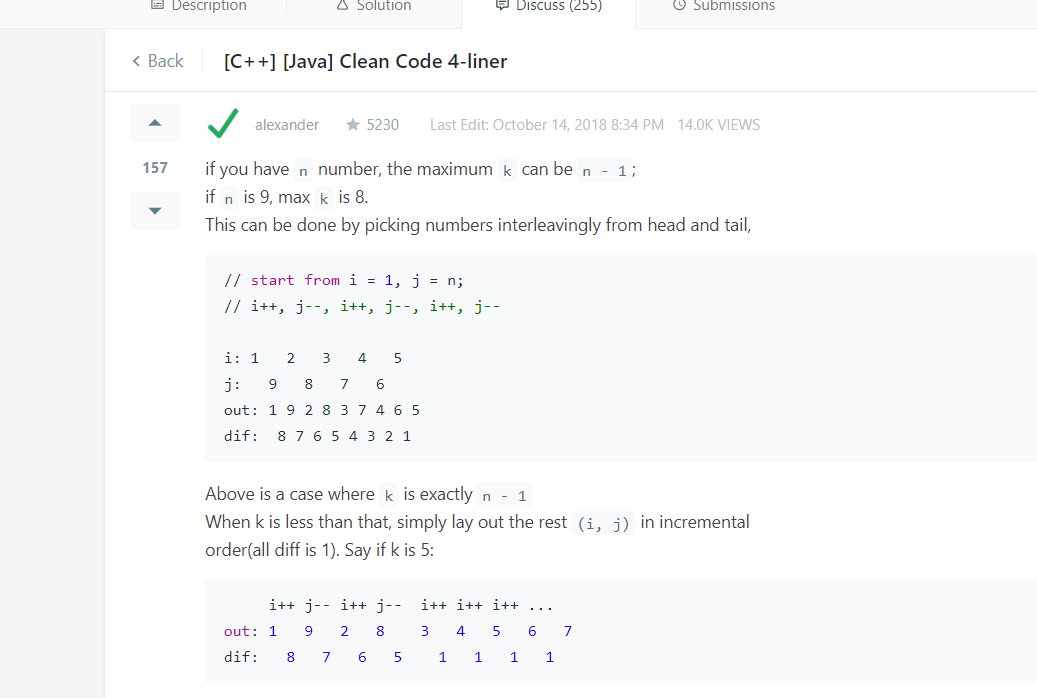Given two integers n and k, you need to construct a list which contains n different positive integers ranging from 1 to n and obeys the following requirement:
Suppose this list is [a1, a2, a3, ... , an], then the list [|a1 - a2|, |a2 - a3|, |a3 - a4|, ... , |an-1 - an|] has exactly k distinct integers.
If there are multiple answers, print any of them.
Example 1:
Input: n = 3, k = 1 Output: [1, 2, 3] Explanation: The [1, 2, 3] has three different positive integers ranging from 1 to 3, and the [1, 1] has exactly 1 distinct integer: 1.
Example 2:
Input: n = 3, k = 2 Output: [1, 3, 2] Explanation: The [1, 3, 2] has three different positive integers ranging from 1 to 3, and the [2, 1] has exactly 2 distinct integers: 1 and 2.
Note:
- The
nandkare in the range 1 <= k < n <= 104.
class Solution { public int[] constructArray(int n, int k) { int l = 1, r = n; int[] res = new int[n]; for(int i = 0; i < n; i++) { res[i] = (k % 2 == 0 ? l++ : r--); if(k > 1) k--; } return res; } }
题目要求个permutation从1-n,要求总共要k个不同的相邻两数的diff。
这样想,n个数,总共最多有n-1个diff,how?
1,2,3,4,5的话,n = 4
1,5,2,4,3,diff = 4,3,2,1
所以,如果要k个不同的,到k-1个之后,让所有剩下的数in order排列,这样最后一个diff就是1了。
这样,通过判断k是odd还是even来给每个位置赋值,如果k还不等于1,那就一前一后这样分开选择,等于1就随便选一边把剩下的补齐。
神奇。。
